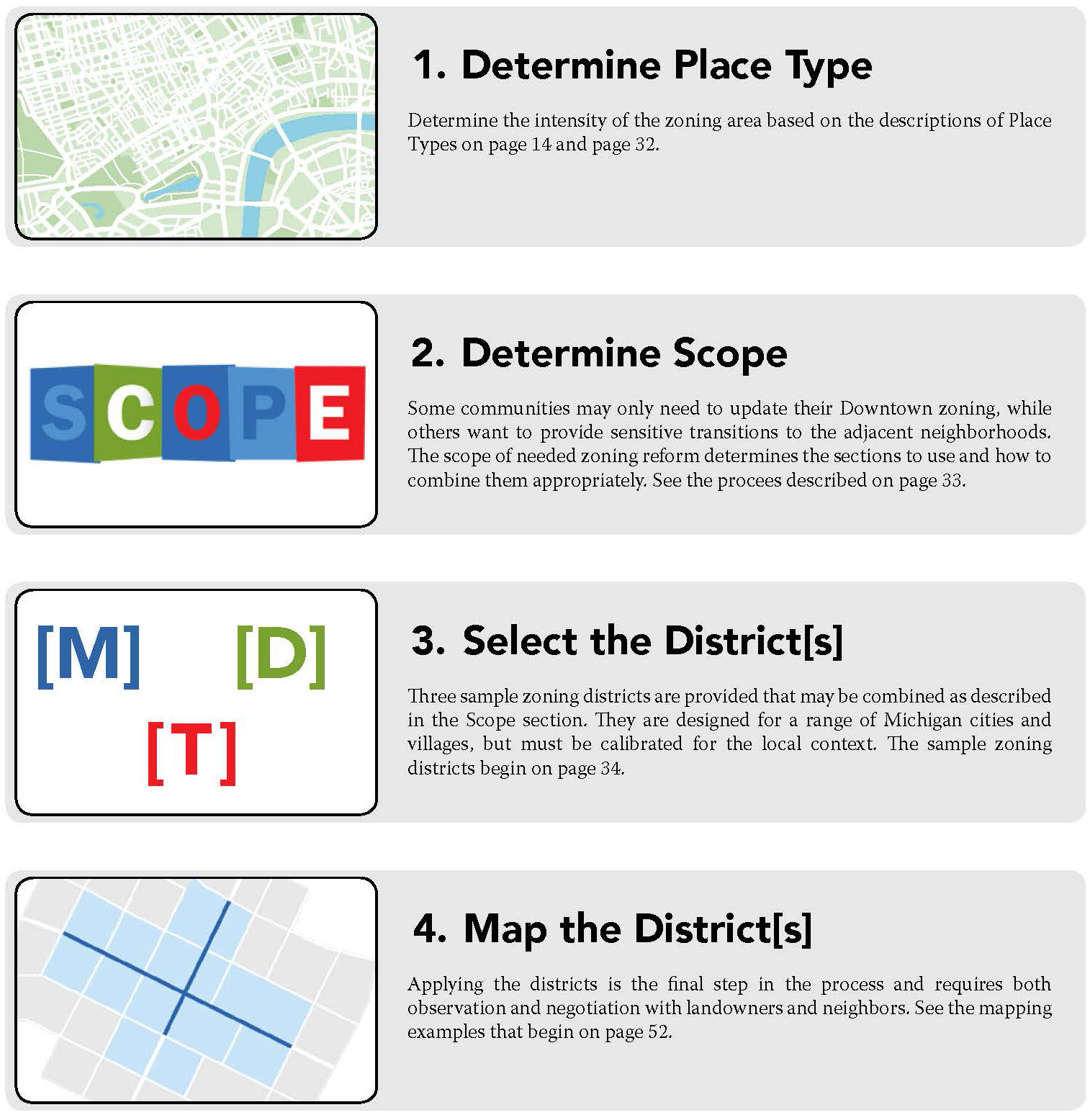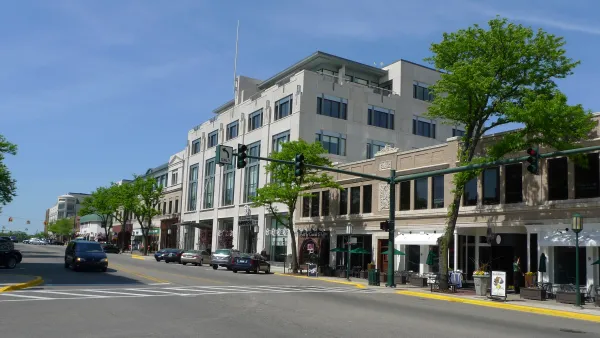The Users’ Guide to Code Reform leads planners through the code reform process, providing tools for governments lacking the capacity to develop a full form-based code. Susan Henderson and Matt Lambert hit the high points.
"The Project for Code Reform is one of the most important efforts we’ve had the privilege of contributing to in the last decade. We’ve spent most of our professional efforts crafting Form-Based Codes (FBC) for local governments, and while we still feel that is the zoning gold standard for placemaking, we realize FBCs are not accessible to many communities across North America for reasons of capacity—either staff or political. Increasingly, local governments want to align their zoning regulations with their goals for placemaking, incremental development, livability, and economic success. They realize conventional suburban standards have completely failed to solve for these issues; however, there are often gaps in political support, staff capacity, and budget to hire consultants for a major rewrite of their ordinances.
"When you consider the 42,000 units of local government in the US, and the vast majority with limited budgets and staff, the issue becomes how to deploy zoning reform broadly, with the least impact on capacity. While most current zoning-focused RFPs include form-based elements, and the spread of FBCs has accelerated, thousands of municipalities and counties continue to guide development with zoning that is antithetical to community goals. At present, analogous to tech start-ups, FBCs have a scaling problem: how can we accelerate the reform of existing codes by local governments in a politically and economically sensitive way?"
Henderson and Lambert go on to highlight alternatives, via their work with Project for Lean Urbanism's Lean Code Tool the Project for Code Reform's Users’ Guide to Zoning Reform.

FULL STORY: The Users’ Guide to Zoning Reform

National Parks Layoffs Will Cause Communities to Lose Billions
Thousands of essential park workers were laid off this week, just before the busy spring break season.

Retro-silient?: America’s First “Eco-burb,” The Woodlands Turns 50
A master-planned community north of Houston offers lessons on green infrastructure and resilient design, but falls short of its founder’s lofty affordability and walkability goals.

Delivering for America Plan Will Downgrade Mail Service in at Least 49.5 Percent of Zip Codes
Republican and Democrat lawmakers criticize the plan for its disproportionate negative impact on rural communities.

Test News Post 1
This is a summary

Test News Headline 46
Test for the image on the front page.

Balancing Bombs and Butterflies: How the National Guard Protects a Rare Species
The National Guard at Fort Indiantown Gap uses GIS technology and land management strategies to balance military training with conservation efforts, ensuring the survival of the rare eastern regal fritillary butterfly.
Urban Design for Planners 1: Software Tools
This six-course series explores essential urban design concepts using open source software and equips planners with the tools they need to participate fully in the urban design process.
Planning for Universal Design
Learn the tools for implementing Universal Design in planning regulations.
EMC Planning Group, Inc.
Planetizen
Planetizen
Mpact (formerly Rail~Volution)
Great Falls Development Authority, Inc.
HUDs Office of Policy Development and Research
NYU Wagner Graduate School of Public Service



























